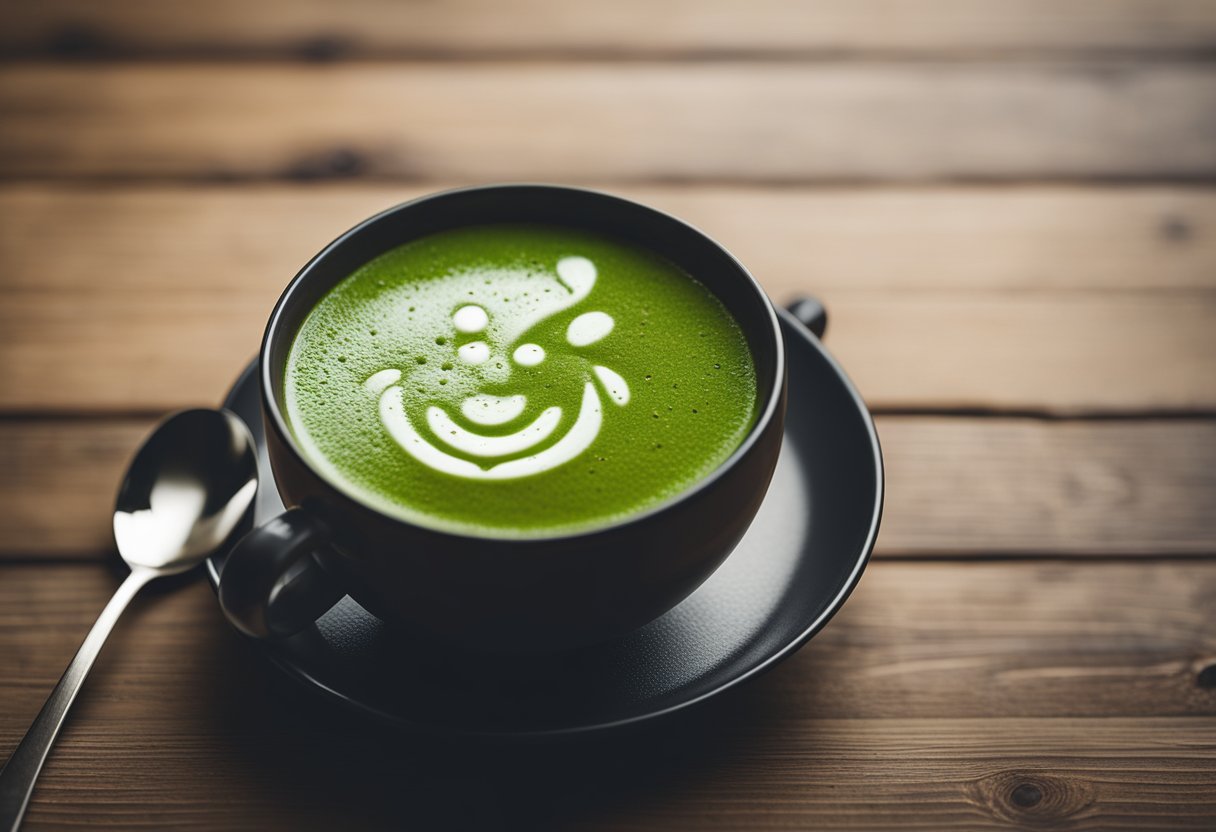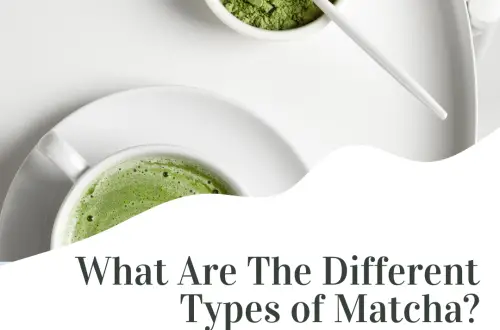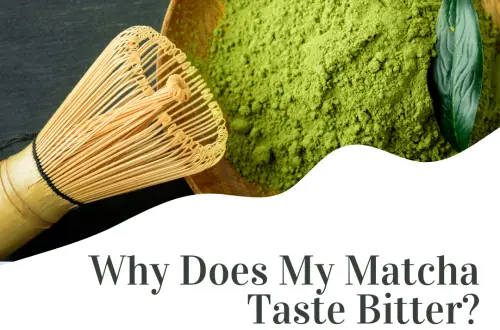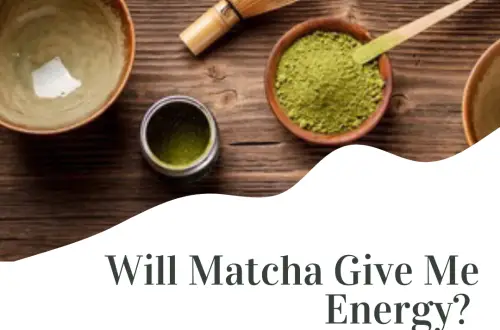If you’re a fan of matcha, you may have heard rumors that it can cause some digestive discomfort. Specifically, some people claim that matcha can make you poop more frequently or urgently. But is there any truth to these claims? In this article, we’ll take a closer look at the relationship between matcha and your digestive system to determine whether or not matcha really does make you poop.
Matcha is a type of green tea that is made from finely ground tea leaves. Unlike other types of tea, matcha is consumed in its entirety, meaning that you’re consuming the entire tea leaf, rather than just the brewed water. This means that matcha is more concentrated in certain compounds, including caffeine and antioxidants, than other types of tea. It’s these compounds that are thought to be responsible for some of the potential digestive effects of matcha.
Quick Navigation
Key Takeaways
- Matcha is a type of green tea that is made from finely ground tea leaves.
- Matcha contains caffeine and antioxidants, which are thought to be responsible for some of its digestive effects.
- While matcha may cause some digestive discomfort in certain individuals, it’s generally considered safe and beneficial when consumed in moderation.
Understanding Matcha and Its Components
Matcha is a type of powdered green tea that originated in Japan. It has gained popularity in recent years due to its unique taste and potential health benefits. In this section, we will explore the origins and popularity of matcha in Japan, as well as its key components: caffeine and antioxidants.
Origins and Popularity in Japan
Matcha has been an integral part of Japanese culture for centuries. It was originally used in traditional tea ceremonies as a way to promote mindfulness and relaxation. Today, matcha is enjoyed in a variety of settings, from casual cafes to high-end restaurants.
In Japan, the production of high-quality matcha is a highly-regulated process. The leaves used to make matcha are grown in the shade for several weeks before they are harvested, which helps to increase their chlorophyll content and create a vibrant green color. The leaves are then ground into a fine powder, which can be whisked with hot water to create a frothy, flavorful beverage.
Key Components: Caffeine and Antioxidants
Matcha contains a combination of caffeine and antioxidants that can provide a range of potential health benefits. Caffeine is a natural stimulant that can help to increase alertness and focus. Antioxidants, such as polyphenols and catechins, are compounds that can help to protect the body against damage from free radicals.
One of the unique components of matcha is L-theanine, an amino acid that is found almost exclusively in tea. L-theanine has been shown to promote relaxation and reduce stress, which can help to balance out the effects of caffeine.
Overall, matcha can be a healthy and enjoyable addition to your diet, especially if you choose high-quality varieties that are free from additives and contaminants.
Matcha and Digestive System
One question that many people have is whether or not matcha can affect your digestive system and cause you to poop more often. In this section, we will explore the impact that matcha may have on your digestive system.
Impact on Bowel Movements
Matcha contains caffeine, which is a stimulant that can increase the motility of your colon and cause you to have more frequent bowel movements. Additionally, matcha contains fiber, which can help to regulate your digestion and promote regular bowel movements.
Potential Laxative Effects
Some people may experience a laxative effect from drinking matcha, especially if they are sensitive to caffeine. However, this effect is generally mild and should not cause any discomfort or diarrhea. If you do experience any digestive discomfort after drinking matcha, it is best to reduce your intake or speak with your healthcare provider.

Matcha vs Coffee and Tea
Compared to coffee, matcha contains less caffeine and is less likely to cause jitters or digestive discomfort. Additionally, matcha contains L-theanine, an amino acid that can help to reduce the negative effects of caffeine and promote relaxation. Compared to other types of tea, matcha contains higher levels of antioxidants and fiber, which can provide additional digestive benefits.
In conclusion, matcha may have a positive impact on your digestive system and promote regular bowel movements. However, it’s important to be aware of any potential laxative effects and to speak with your healthcare provider if you experience any digestive discomfort.
Health Benefits and Side Effects of Matcha
Matcha is a popular green tea that has been consumed for centuries in Japan. It is made from finely ground green tea leaves and is known for its vibrant green color and earthy taste. Matcha has gained popularity in recent years due to its potential health benefits. However, it is important to understand the potential side effects before incorporating it into your diet.
Positive Impact on Health
Matcha is rich in antioxidants, which can help prevent cell damage and reduce the risk of chronic diseases such as cancer and heart disease. It also contains caffeine, which can help improve mental alertness and concentration. Matcha is also high in vitamins and minerals such as vitamin C, selenium, zinc, and magnesium.
Matcha has been shown to improve digestion and promote gut health. It contains tannins, which can help reduce inflammation in the digestive tract and improve waste elimination. Matcha is also hydrating and can help improve your metabolism.
Potential Side Effects
While matcha has many potential health benefits, it’s important to be aware of its potential side effects. Some people may experience nausea or an upset stomach after consuming matcha. This may be due to sensitivity to caffeine or tannins.
Matcha contains caffeine, so it may not be suitable for people who are sensitive to caffeine or who have kidney problems. It is also important to note that matcha should not be consumed in large amounts as it may cause electrolyte irregularities.
In addition, matcha may interact with certain medications, so it is important to consult with your doctor before incorporating it into your diet.
Overall, matcha can be a healthy addition to your diet when consumed in moderation. It is important to be aware of its potential side effects and to consult with your doctor before incorporating it into your diet if you have any concerns.
Matcha Consumption: Moderation and Hydration
Importance of Moderation
While matcha has several health benefits, consuming it in excess can have adverse effects on your body. Matcha contains caffeine, which can cause dehydration and lead to digestive issues if consumed in large amounts. Therefore, it is essential to consume matcha in moderation.
The recommended amount of matcha per day is around 1-2 teaspoons. Consuming more than this can lead to caffeine overdose, which can cause restlessness, anxiety, and increased heart rate. Therefore, it is crucial to monitor your matcha intake and consume it in moderation.
Hydration and Matcha
As mentioned earlier, matcha contains caffeine, which can cause dehydration. Therefore, it is essential to stay hydrated when consuming matcha. Drinking plenty of water can help maintain the water content in your body and prevent dehydration.
Apart from water, consuming electrolyte-rich drinks can also help maintain hydration levels in your body. Electrolytes are minerals that help regulate the water content in your body. Consuming drinks like coconut water or sports drinks can help replenish electrolytes lost due to urination.
In conclusion, matcha consumption in moderation and staying hydrated is essential to prevent any adverse effects on your body. Monitor your matcha intake and ensure that you maintain hydration levels in your body by drinking plenty of water and electrolyte-rich drinks.
Incorporating Matcha into a Balanced Diet
If you’re interested in incorporating matcha into your diet, there are a few things to keep in mind. First, it’s important to remember that matcha is not a magic solution for any health concerns. While it can certainly be a healthy addition to your diet, it’s not a substitute for a balanced diet and exercise.
One way to enjoy matcha is by adding it to your smoothies or protein shakes. Simply blend a teaspoon or two of matcha powder with your favorite fruits and vegetables, along with some protein powder and milk or water. This is a great way to get a boost of nutrients and energy in the morning or after a workout.
Another option is to use matcha as a replacement for your morning coffee. Matcha contains caffeine, but it also has a unique amino acid called L-theanine, which can help promote relaxation and focus. Try making a matcha latte with almond milk or another non-dairy milk for a comforting and energizing drink.
If you’re concerned about the green color of matcha, don’t worry – it’s completely natural and comes from the high levels of chlorophyll in the tea leaves. In fact, chlorophyll is a nutrient that can help support healthy digestion and detoxification in the body.
It’s also worth noting that while matcha is often touted as a superfood, it’s not the only way to get the benefits of green vegetables. Eating a variety of vegetables like kale and spinach is still important for overall health and wellbeing.
Finally, if you’re pregnant or nursing, it’s always a good idea to consult with your healthcare provider before making any significant changes to your diet. While matcha is generally considered safe, it’s always better to err on the side of caution when it comes to your health and the health of your baby.

Scott is the founder of TeaMinded. He enjoys tasting and discovering teas from across the globe, with green teas and ceremonial matcha from Japan being among his favorites. He’s grateful to be immersed in the tea community, always learning and sharing along the journey.






